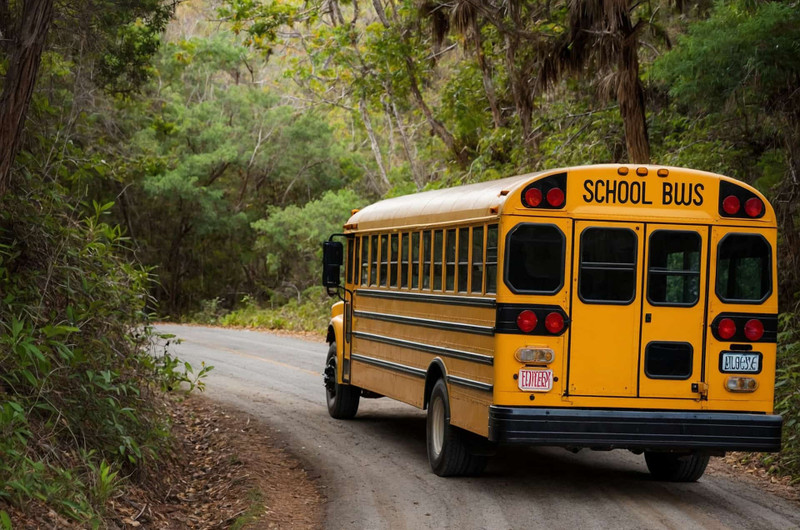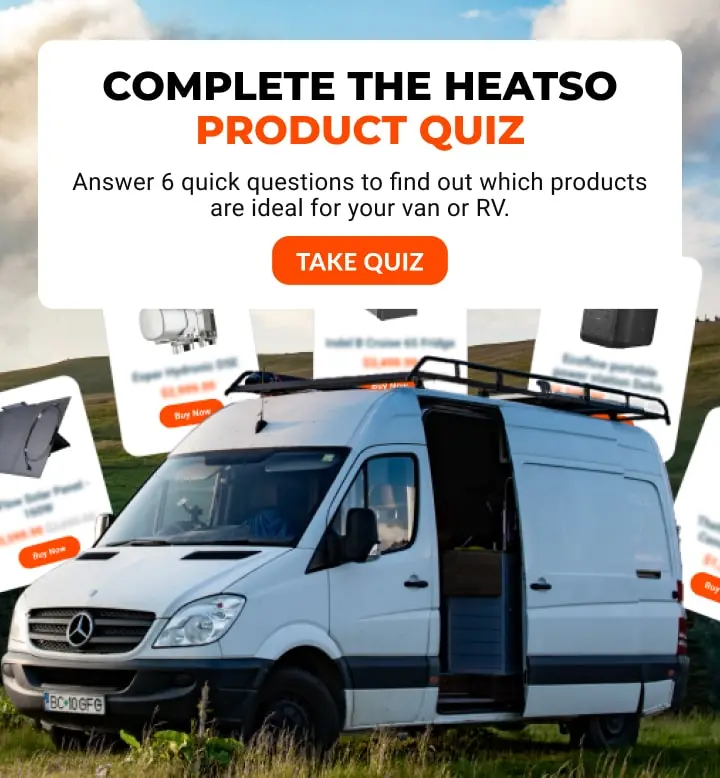A Step-by-Step Guide to Skoolie Heating Options
Posted by bz@heatso.com on 23rd Dec 2024
How to Choose the Best Skoolie Heater for Your Converted Bus?
Living in a skoolie comes with some challenges, especially when the weather turns cold. In addition to comfort, staying warm is essential for safety.
Fortunately, there are several heating methods to keep your converted bus cozy and comfortable.
In this guide, we’ll walk you through different skoolie heating options, how to choose the right one, and important installation tips to help you make an informed decision.
Types of Skoolie Heating Systems
For heating your skoolie, you’ll need to choose the system that matches your lifestyle, budget, and the climate you plan to spend most of your time in. Here are the most popular heating options:
Diesel Heaters
Diesel heaters are quite popular among skoolie owners. These heaters, such as models from Espar brand or Webasto, burn diesel fuel from your bus’s tank or a separate reservoir. They’re highly efficient, simple to operate, and can run for long periods with minimal fuel consumption.
Diesel heaters are one of the best options for heat for school buses with diesel engines. Regardless of whether you use a couple of heating options, diesel heaters are usually your primary heating source in a skoolie.
Generally, a 5kW diesel heater would adequately heat a van or RV, but for skoolie heating, you will need at least a 8kW diesel heater.
- Pros: Efficient, consumes little electricity, heats quickly, uses existing supply of fuel if connected to the bus’s tank.
- Cons: Requires installation, requires a higher initial investment.
Best for: Those spending a good amount of time in cold climates who want a reliable, low-maintenance system.
Propane Heaters
Propane heaters are another great choice for skoolies, especially those equipped with a propane system for cooking or other appliances. There are vented and unvented models, though vented propane heaters are usually the safer option (less risk of carbon monoxide).
With propane heaters, you can heat a skoolie up from 40°F to 70°F in less than 15-30 minutes, depending on the size of the school bus conversion. When it comes to heating a skoolie, it's a solid backup option.
- Pros: Widely available fuel, efficient, heats quickly, runs quietly
- Cons: Requires proper ventilation to prevent gas buildup, refilling propane can be a hassle.
Best for: Skoolies with existing propane setups and those who want fast, efficient heat.
Wood-Burning Stoves
For those looking for a more rustic, off-grid heating solution, wood-burning stoves can be an excellent option. Although they require more effort in terms of wood sourcing and regular cleaning, skoolie owners appreciate the warmth and ambiance they offer.
A wood stove also requires a lot more work than some of the other heating options for a skoolie. To keep the fireplace warm, you'll need to monitor the fire regularly and remove the ashes.
You must keep in mind that without maintenance, wood stoves only burn for 4-6 hours. To get through a cold night's sleep, we recommend looking into a second source of heat.
- Pros: Does not require propane, diesel, or electricity; eco-friendly if wood is sustainably sourced.
- Cons: Takes up more space, a fire risk, frequently requires maintenance, on the expensive side.
Best for: Off-grid living or those who want a more eco-friendly and sustainable heating option.
Electric Heaters
If you have access to shore power or a reliable solar system, electric heaters can be a convenient option. Space heaters and electric radiators are simple to use and work well in moderate climates.
If you plan to install a large solar set-up on your skoolie, electric heater may be a very eco-friendly option. However, solar panels for heat alone can be very expensive if you don't plan on using them for other reasons.
- Pros: Easy to install, no fuel required, portable options available,
- Cons: Requires a steady power source, off-grid usage can drain batteries rapidly
Best for: Those who usually have access to shore power or a powerful off-grid electrical setup.
Hydronic Heating Systems
Hydronic systems use hot water to heat your bus conversion. These setups can run on diesel or propane and are normally integrated with your skoolie’s hot water system, providing space heating as well as hot water.
- Pros: Dual-purpose heating (space and water), effective in cold climates.
- Cons: Expensive to install, requires more effort in maintenance.
Best for: Full-time skoolie owners in cold climates who want both heat and hot water in one system.
Installation Considerations for Skoolie Heating Systems
No matter which heating system you choose, proper installation is essential for safety and performance. Here are some things to keep in mind.
Space and Placement
The placement of heating systems in skoolies requires careful consideration, because space is limited. Diesel and propane heaters can be tucked away under seats or in cabinets, while wood-burning stoves and electric heaters require more clearance.
- Tip: Make sure your heater is situated where the warm air will circulate effectively throughout the bus.
Venting and Insulation
Proper venting is key to preventing dangerous fumes like carbon monoxide from building up in your bus conversion. Propane, diesel, and wood-burning stoves require venting to the outside, so make sure you plan ahead.
Also, don’t forget about insulation. No matter how powerful your heater is, poor insulation will let all the heat escape. Invest in high-quality insulation to maintain warmth and save money on fuel.
- Tip: Consider investing in thermal curtains or window insulation kits for an extra layer of protection against the cold.
Safety Precautions
Ensure that you have carbon monoxide detectors and smoke alarms in working order. Regular maintenance, such as cleaning filters or ash trays, is also necessary to keep your heating system working safely.
Heating and Hot Water Systems for Skoolies
For maximum efficiency, many skoolie owners combine their space heating with their hot water system. Here’s a look at how to do that.
Combination Skoolie Hot Water Heaters
Hydronic systems, which pair space heating with water heating, provide heat for your bus while also supplying hot water for showers and sinks. These systems use diesel or propane and offer a two-in-one solution that’s great for cold climates.
Tankless Water Heaters
Tankless skoolie water heaters are popular for skoolies since they take up less space and only heat water on demand. Propane-powered models are the most common, but electric versions are also available if you have a reliable power supply.
Solar-Powered Hot Water
For a more environmentally friendly option, consider solar-powered water heaters. These systems can be less effective in colder climates but are a great option for those living off-grid in sunny areas.
Cost Comparison: Heating Options for Every Budget
Budget is always a factor when setting up a skoolie. Here’s a quick breakdown of the costs involved with each heating system:
Initial Setup Costs
- Diesel heaters: $500–$1,200, depending on brand and installation requirements.
- Propane heaters: $200–$800, plus propane tank and ventilation costs.
- Wood-burning stoves: $300–$2,000 including chimney installation.
- Electric heaters: $50–$1,000 for basic space heaters.
- Hydronic heating: $1,500–$3,000+ for more complex setups.
Long-Term Operating Costs
- Diesel and propane heaters: Ongoing fuel costs (diesel or propane refills).
- Wood stoves: Cost of wood, varying by location.
- Electric heaters: Ongoing electricity costs or battery drain (off-grid).
Maintenance Costs
Propane heater or a diesel heater for skoolie require occasional filter changes and cleaning, while wood stoves need regular chimney cleaning and ash removal.
Best Skoolie Heaters for Different Climates and Lifestyles
Choosing the right heating system depends on where you intend to travel and how you live in your skoolie. Although you could choose just one option, it is really recommended to have a backup.
Cold-Climate Solutions
If you’re spending winters in chilly climates, diesel and hydronic systems offer the best option for consistent, reliable heat. These systems are built for freezing temperatures and will keep your bus warm even in severe weather.
Off-Grid Heating Solutions
For those living off-grid with no access to shore power, wood stoves and propane heaters are ideal. Wood stoves offer an eco-friendly option, while propane heaters provide quick, effective warmth.
Eco-Friendly Heating Options
When it comes to sustainability, consider choosing wood-burning stoves or solar-powered heating and hot water systems. While they may require more planning and work, these options use less fossil fuels and offer a greener way to heat your skoolie.
Making the Right Choice for Heating Your Skoolie
Choosing the right heating system for your skoolie is essential to creating a comfortable, livable space, especially in colder seasons.
From diesel heaters to wood stoves, there’s an option to fit any budget, lifestyle, and climate. Make sure to weigh the pros and cons of each system, ensure proper installation, and consider combining space and water heating to get the most out of it.
Ready to warm up your skoolie? Explore our recommended heaters to take your skoolie conversion to the next level!













